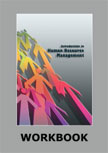IR Problems at Toyota Kirloskar Motor Private Limited
|
|
ICMR HOME | Case Studies Collection
Case Details:
Case Code : HROB088
Case Length : 16 Pages
Period : 2000-05
Pub Date : 2006
Teaching Note :Not Available
Organization : Toyota Motor Corporation, Toyota Kirloskar Motor Private
Industry : Auto and Ancillaries
Countries : India
To download IR Problems at Toyota Kirloskar Motor Private Limited case study
(Case Code: HROB088) click on the button below, and select the case from the list of available cases:

Price:
For delivery in electronic format: Rs. 300;
For delivery through courier (within India): Rs. 300 + Rs. 25 for Shipping & Handling Charges
» Human Resource and Organization Behavior Case Studies
» HRM Short Case Studies
» View Detailed Pricing Info
» How To Order This Case
» Business Case Studies
» Area Specific Case Studies
» Industry Wise Case Studies
» Company Wise Case Studies

Please note:
This case study was compiled from published sources, and is intended to be used as a basis for class discussion. It is not intended to illustrate either effective or ineffective handling of a management situation. Nor is it a primary information source.
Chat with us

Please leave your feedback

|
|




<< Previous
Excerpts
Background Note
TKM, a joint venture between Toyota and the Kirloskar Group , established its plant at Bidadi on October 06, 1997, with an initial investment of Rs. 7 billion. Toyota held a 74 percent stake in the joint venture while the remaining 26 percent stake was held by the Kirloskar Group. In 1999, Toyota increased its stake to 89 percent...
Labor Relations at TKM
|
From the time it started production operations in 2000, TKM had had a history of
disturbed relations between the management and the workers. Prior to the strike
and lockout in January 2006, the plant had experienced three other strikes: two
in 2001, and a strike and a lockout in 2002 that lasted for almost two months.
The first strike at TKM began in April 2001, and it went on for about two days.
The second one was in June the same year. In 2002, the company decided to call
the workers in two shifts to meet the increased demand for the company's cars.
The first shift at TKM started at 8 AM and ended at 4 PM. The workers in this
shift were asked to work overtime for four hours between 4 PM and 8 PM...
|

|
The Dispute
On January 05, 2006, TKM's management dismissed three workers out of the
fifteen that had been suspended in February 2004. According to the
management, the three workers, Prasanna, Sridhar Dhote, and Satish, had been
dismissed as the year-long investigations carried out by TKM had proved that
they were guilty of misconduct which included violent behavior, disruption
of work, and assault on a supervisor...
The Negotiations
TKM's management presented the labor issue before V N Hittanagi (Hittanagi), the Deputy Labor Commissioner (DLC) of Karnataka (Region II). The management, however, maintained that it would not go back on its decision on not reinstating the dismissed workers. On January 09, 2006, the representatives of TKM, TKMEU, and the CITU were asked to present their case before the office of the DLC at a conciliatory meeting...
|
|
The Dispute Continues
On January 20, 2006, in a sudden turnaround, TKM's management
announced in the local newspapers that it would lift the lockout. In
an advertisement, it said that it was happy to announce that the
lockout would be lifted from January 21, 2006 onward. However, the
workers reporting for duty were asked to sign an undertaking to
maintain good conduct. Commenting on the decision, Shankar said,
"The management has decided to lift the lockout in response to the
request of several employees who have expressed willingness to
resume work... |
The Result
TKM did not face any major problems due to the strike of the workers and the
lockout at its plant, having ensured that the market supply was not affected by
either. TKM had made appropriate arrangements to meet the market demand for its
cars in the event of the talks failing between the management and the union...
Exhibits
Exhibit I: Labor Unrest at HMSI
Exhibit IIA: Number of Strikes and Lockouts in India (2002-06)
Exhibit IIB: Industrial Disputes in India (2005)
Exhibit III: Trade Unions in India
Exhibit IV: Employment Laws in India
|
|










